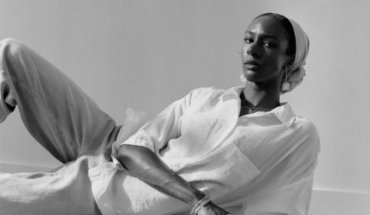BY LUKE HARRIS STAFF WRITER
Our world is stuck in the fast lane. Text messages give us instant communication. Amazon promises speedy delivery. McDonalds gets you crappy food quickly. This desire for quickness is driven by an underlying desire for convenience.
Let’s be real: We all like it easy. Should I write out an elaborate letter to my mother in response to her questions about my day? No, I can just text her “it was meh.” Will I save a few dollars and not order quicker delivery for the socks I bought off Amazon? No, I need them immediately. Can I cook a tasty, nutritious meal at home? Sure, but I’m already driving towards the Golden Arches because nuggets can’t wait.
Our desire for convenience is fed by companies looking to profit off it. There isn’t an industry left untouched by our need for an easy experience, including entertainment.
The entertainment industry is a driving force in the public’s perception of culture. It can stop trends just as quickly as it starts them. But the industry is adapting to the new standards of convenience.
This new shift is influenced by the rise of social media. One in three people in the world uses a social media platform. Entertainment businesses recognized that their products needed to reflect social media users’ shorter bursts of attention. So the industry began to adapt.
Blockbuster movies began to get shorter as more people choose the convenience of television. Songs are getting quicker too as streaming platforms compete for attention. But nothing can compare to the viral popularity of seconds-long videos on the social media platform TikTok. That’s where truly convenient entertainment is found.
What social media platforms are curating is a sense of freedom and control for their audience. When you want to be entertained, you can watch YouTube for a quick hit of cat videos. If they are boring, you get to switch over to Instagram and scroll through various pictures there. If that gets boring, maybe Twitter will have some juicy memes. Social media provides an avalanche of choices.
Another advantage is that the majority of these platforms offer up their products for free. You aren’t wasting money by not finishing a piece of content you don’t like. You’re just moving on. But if you don’t finish a movie you bought, then your dollars are wasted. If you didn’t like an album you purchased, then your money went down the drain. But if you scroll past an uninteresting tweet, you’re not losing anything.
Just because our entertainment has gotten easy to consume doesn’t mean it is good for us. The best entertainment balances escapism from our lives with reflection on our lives. I’m talking about the pieces of entertainment that aren’t afraid of taking us on a slow cruise.
Sadly, these pieces of entertainment aren’t the norm of consumption. Movies like Barry Jenkins’ “Moonlight” that have a slow, methodical pace are sure to bore the average gamer. Eight-minute pieces of music like Bob Dylan’s “Hurricane” are too long for modern music standards. Artists like Jenkins and Dylan weren’t making convenient works, they were making powerful stories that challenge the audience and leave them better for it.
We need to start seeking out entertainment that isn’t convenient. Let’s start showing businesses that they can profit by selling mindful entertainment. Look for the longer pieces of work that challenge you intellectually and emotionally. Instead of spending an hour jumping across various social media platforms, maybe use that hour to check out some music you wouldn’t have listened to otherwise.
It may be challenging at first, but it’s worth it. If we can all start choosing the more inconvenient entertainment, then maybe the world will begin to realize the best lane isn’t always the fast one.




